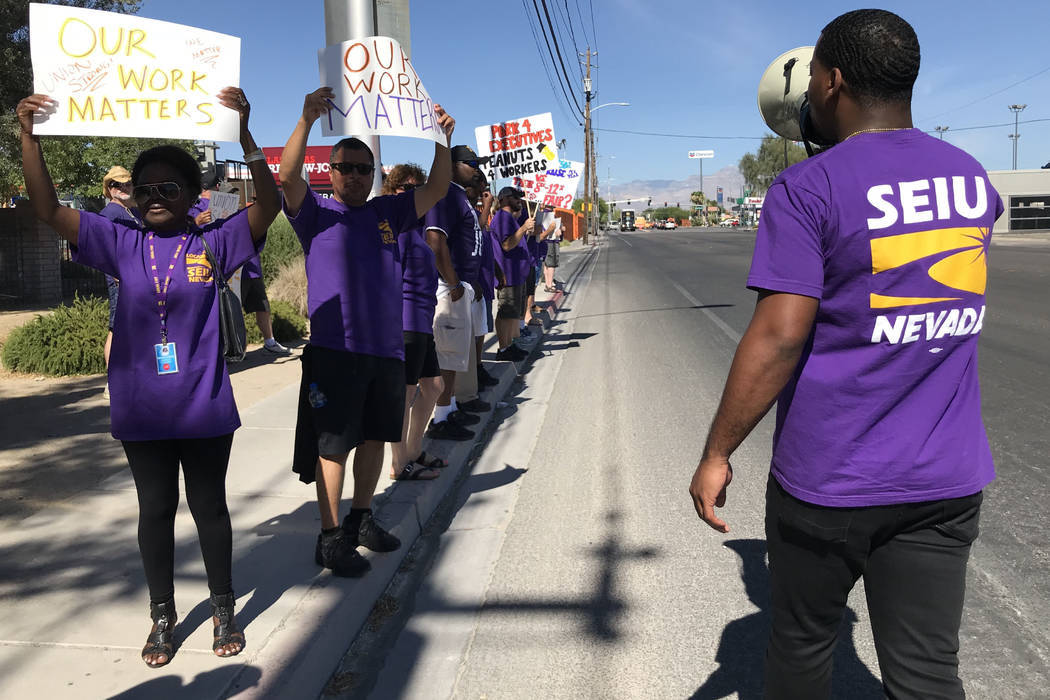EDITORIAL: Labor transparency needed as local governments deal with financial pain
The coronavirus economic shutdown is devastating local government budgets. That’s why transparency in collective bargaining negotiations is more important than ever.
It’s too early to know how much tax revenues will drop because of the forced closure of many businesses. Much will depend on how soon Gov. Steve Sisolak and health experts deem it’s safe for Nevadans to go back to work. In a best-case scenario, that recovery will happen quickly enough that the downturn doesn’t sink property values, which would decrease property tax revenues. Regardless, local governments will see a big hit from a decline in sales, gaming and room taxes.
That’s going to cause numerous problems throughout Southern Nevada. Just a few years ago, the Clark County School District’s reserve fund represented only a few hours of spending. Until the virus hit, the district had been slowly building up its reserve, but it’s still not large. Clark County’s fiscal position is stronger. Its budget this year included an ending fund balance of 9 percent, although that doesn’t account for the current drop in revenue.
Local governments spend the vast majority of their general funds on personnel costs. In the school district, it’s more than 80 percent. For the Metropolitan Police Department, it’s more than 85 percent. This means that when elected officials go looking for budget reductions, employee compensation must inevitably be considered. This is especially true if a falling stock market forces Nevada’s Public Employees’ Retirement System to hike contribution rates — again.
Absent a special session — which is almost a certainty — the school district will likely have difficulty fulfilling the contract it agreed to last year. Meanwhile, Clark County has several bargaining groups whose contracts end in June.
These negotiations and others like them will have significant consequences given the decline in tax revenue. They’ll likely lead to tax increases, job losses and pay reductions or some combination of all three. Unfortunately, taxpayers won’t be able to see what’s happening behind closed doors. That’s because labor negotiations are conducted in secret. The public sees only the final product and usually only a few days before elected officials vote on it.
There’s a better way. Taxpayers should be able to watch these negotiations as they’re happening to ensure they are being properly represented. This approach has widespread public approval, according to a statewide poll released earlier this month by the Nevada Policy Research Institute. The survey found that more than 70 percent of Nevadans support allowing the public to watch negotiations between unions and government officials. Just 18 percent are opposed.
Before local governments start looking to raise taxes, the public needs to be able to see what’s happening at the bargaining table.

















